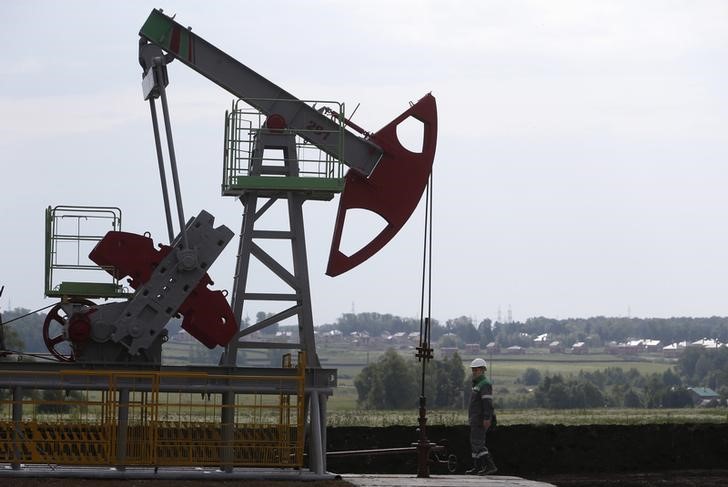By Peter Nurse
Investing.com -- Oil prices weakened Thursday as talks to resurrect the Iranian nuclear deal appeared to be heading in the right direction, but losses were trimmed by the renewed tensions on the Ukrainian border.
By 9:20 AM ET (1420 GMT), U.S. crude futures traded 2.6% lower at $91.22 a barrel, while the Brent contract fell 2.6% to $92.38.
U.S. Gasoline RBOB Futures were down 2.7% at $2.6059 a gallon.
Delegates from France stated Wednesday that a decision regarding the nuclear deal limiting Tehran’s nuclear capabilities was only days away, a sentiment that the U.S. agreed with. State Department spokesperson Ned Price said the United States is in "the midst of the very final stages" of indirect talks with Iran.
While doubts still remain about whether Iran will make the political choice to sign a deal with the West, an agreement would potentially allow the Persian Gulf country to resume exporting its crude output to the global market by the removal of U.S.-imposed sanctions.
“If we are to see a lifting of sanctions, it would help ease some concerns over the ability of OPEC to increase output. Iran is currently producing at around 2.5MMbbls/d but is estimated to have a capacity of closer to 3.8MMbbls/d,” said analysts at ING, in a note, “Therefore, over time there is the potential for 1.3MMbbls/d of additional supply to come onto the market.”
That said, the tensions in Eastern Europe over a potential invasion of Ukraine by Russia continue to provide support for the market, given the potential disruption of gas supplies to Western Europe, in particular. This would mean that these countries have to seek different sources for their energy demands.
Doubts have emerged about the veracity of Russia’s claim earlier this week that it was withdrawing some of its troops that had been gathering near the Ukraine border, with the U.S. calling the claim “false”, saying Russia is actually increasing its troop numbers.
Additionally, Russian-backed rebels in eastern Ukraine accused government forces of shelling their territory with mortars. Ukraine's military denied the accusations, saying it was the other side that committed the act of aggression.
Such incidents have become reasonably common during the eight years of this conflict, but this is the type of event that the West fears could be used by Moscow as a reason to invade.
“There still appears to be a fairly large risk premium priced into the market,” ING added.
